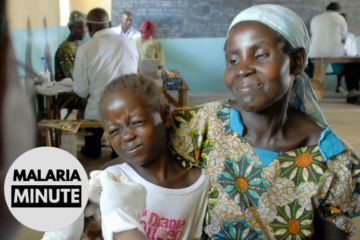The Latest Malaria News, in 60 Seconds.
Enhancing antibody induction may improve the protective efficacy of RTS,S and researchers find that more gametocytes are produced when human infection is initiated by blood-stage parasites compared to mosquito bite.
Malaria Minute on iTunes and Spotify
Transcript:
The RTS,S malaria vaccinate works by targeting the circumsporozoite protein, the major surface protein on the sporozoite, which is the form of the parasite that’s injected into the human during a mosquito blood meal. A new study, published this week, has revealed more about how RTS,S provides protection against malaria. Researchers found that people with high levels of the vaccine-induced antibodies that mediate an Fc-dependent effector immune response against the parasite were more likely to be protected from malaria. Enhancing the induction of these antibodies may, therefore, help improve the protective efficacy of RTS,S.
And researchers have found that more gametocytes are produced in controlled human malaria infection studies when the infection is initiated by blood-stage parasites compared to mosquito bite. This finding paves the way for a new model that will enable scientists to easily evaluate how effectively drugs and vaccines can block transmission.
Sources:
Image Credits: US Army Africa [Flickr]
Scientific Advisor: Katharine Collins, Radboud University Medical Centre


